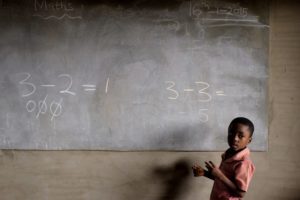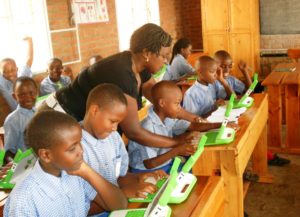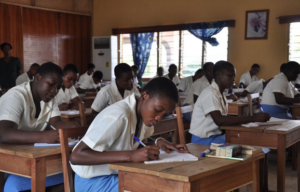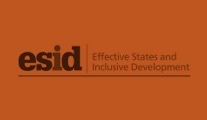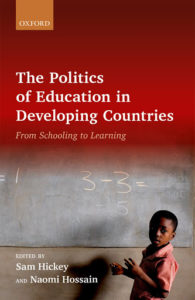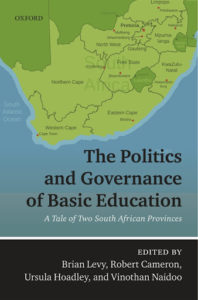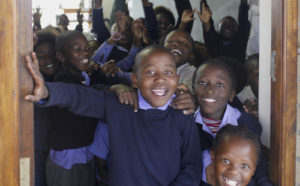| Bangladesh | Rwanda |
| Cambodia | South Africa |
| Ghana | Uganda |
Researching the politics of development
Education
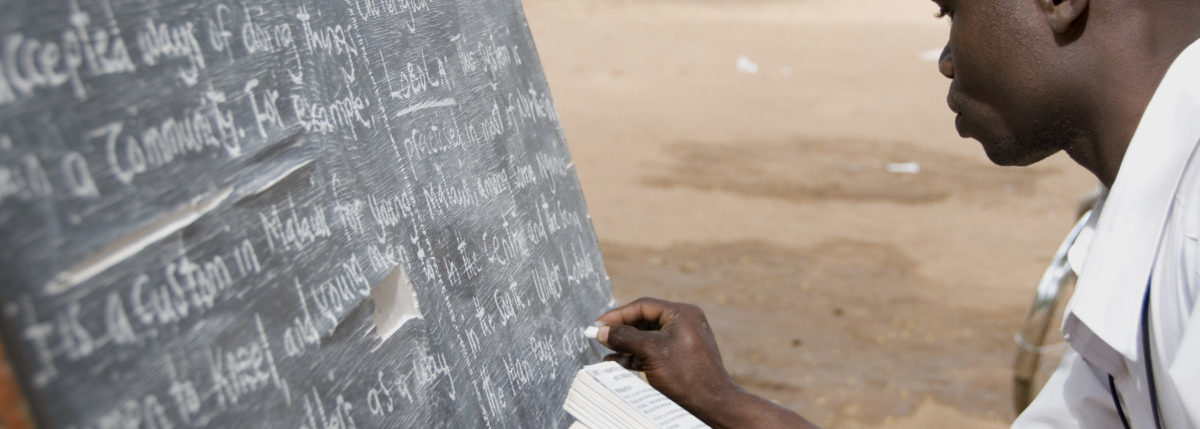
Ensuring that more children – particularly girls and those from low-income households – can access basic education counts as one of the major development success stories of the past two decades.
But impressive gains in getting children into school are not matched by progress in what they learn once they get there. Our research investigated how educational outcomes in developing countries are shaped by politics.
We conducted a comparative case-study in five countries that broadly fit with three different types of political settlement. Our focus was on the extent to which the nature of the political settlement helps explain why improving basic education quality has been so challenging for developing countries.
We sought to understand how the political settlement influences how and whether the problem of quality is conceived and addressed.
Key findings
In all the countries we found that education policies were driven by political considerations that failed to prioritise quality in favour of shorter-term gains.
All of the settlements we studied are also founded on shared ideas, often including the elite’s longstanding belief in the power of education to secure certain forms of modernity and citizenship. However, the nature of these ideas can run counter to a focus on improving learning outcomes and higher quality learning.
Educational outcomes also differ according to the local-level context. We therefore need to look beyond national political settlements to examine how these dynamics and relations play out within decentralised systems of educational provision and localised realms of power relations.
Listen to Naomi Hossain speak to Duncan Green on The Politics of Education in Developing Countries: From Schooling to Learning
Case study: Education and the Three Cs
Context
In Ghana, we compared two districts in the same region. In one district, higher levels of electoral competition had perpetuated a short-term approach, and a reluctance to discipline a teaching workforce in order to maintain the party’s support base. Meanwhile, the relative dominance of the ruling party in the other district reduced the political temperature and enabled a coalition of local elites to come together and work towards longer-term goals focused on the quality of learning.
Capacity
The capacity of local governments to deliver high quality education is frequently undermined both the politicisation of education policy and the lack of coherence between centralised and decentralised systems of accountability, performance management and career development.
Coalitions
Coalitions that support access to education remain more powerful than those supporting learning outcomes. The former involve populist leaders and their rural constituencies, teachers’ unions, and (historically) international development agencies. Meanwhile, the latter is confined to business groups, middle-class parents and (increasingly) development agencies. This imbalance of power must be addressed if learning is to become a government priority.

